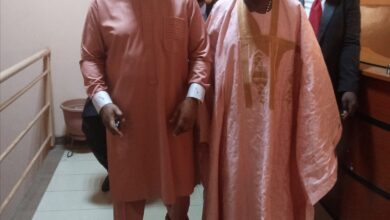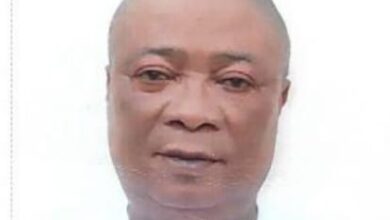
The Ikeja Division of the Lagos State High Court has sentenced two men, Kenneth Chukwuemeka Ajoku and Gregory Gyeburn Wongkyezeng, to ten years’ imprisonment each for defrauding a businessman of ₦9 million and a flat located in Festac Town, Lagos.
Delivering judgment on Thursday, July 3, 2025, Justice Ismail O. Ijelu found both defendants guilty on multiple counts of stealing and obtaining money and property by false pretence, in violation of the Advance Fee Fraud and Other Fraud Related Offences Act of 2006 and the Criminal Law of Lagos State, 2011.
The trial, which began afresh (de novo) in May 2024, saw the prosecution team led by Franklin Ofoma call two witnesses and tender 12 exhibits.
The defence, led by Professor Paul C. Ananaba, SAN, opened its case in January 2025 and concluded in February 2025, submitting 27 exhibits.
Justice Ijelu held that the defendants engaged in a fraudulent scheme that deceived Prince Okpara into parting with ₦9 million and a residential flat, through deliberate misrepresentation and abuse of trust.
On Count One (Stealing), both defendants were sentenced to three years’ imprisonment with an option of ₦500,000 fine each, payable within six months. Failure to pay would result in serving the full sentence.
Read Also: EFCC Arraigns Two Chinese Nationals, Nigerian Over ₦3.4 Billion Cyber Fraud
For Counts Two and Four relating to obtaining money and property under false pretences, the Court imposed a mandatory sentence of ten years’ imprisonment on each convict without option of fine, as prescribed under Section 1(2) of the Advance Fee Fraud Act.
The Court clarified that although the charges were separately framed, Counts Two and Four arose from the same transaction, and thus Count Four was treated as subsumed under Count Two, in accordance with the rule against double punishment.
In a noteworthy part of the judgment, the Court ordered restitution: Ajoku is to repay ₦2.3 million, and Wongkyezeng is to return ₦9 million (less verified costs) to FMFL within six months.
Should both convicts fulfil this order, their ten-year sentence may be reduced to seven years, reflecting remorse and reparative intent.
The Court further ruled that no remission or parole shall apply until seven years are served, reinforcing the seriousness of the offence and the need for deterrence.
The case, marked ID/7150C/2024, underscores the judiciary’s commitment to accountability and due process, while also calling enforcement agencies to act within legal bounds.







